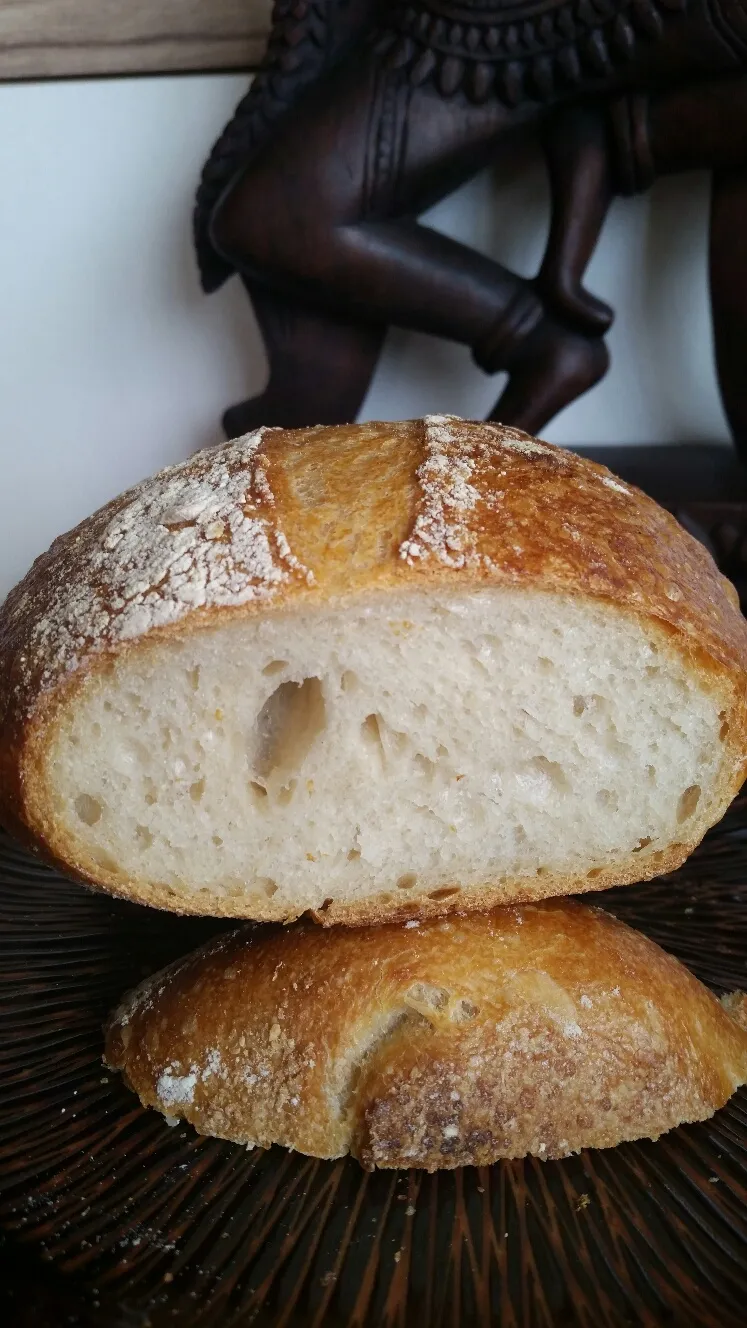
Is there a reason why everyone seems to be doing s&f in an oiled bowl while proving dough for batards and baguettes using sourdough? I do the s&f on my counter and cover the dough with an inverted bowl. Is there something wrong with that? Or any benefit to using an oiled bowl? I'm mystified!!
In general, both have the same purpose and achieve the same results - developing gluten and the gluten network, redistributing oxygen, products of fermentation and dough temperature, etc. The situation where fermentation and S&F's in a bowl is superior is when you are working with a very wet dough that would just spread out without the support of the bowl walls.
The other advantage of the bowl is less mess and less incorporation of the extra flour generally used to dust the board.
Is there anything "wrong" with what you are doing? No. Not if you are happy with the results.
Happy baking!
David
That's as good an explanation as any :) Will s&f in an oiled bowl and compare!! I wanted to upload a pic of a batard I baked for your input but can't seem to figure out how to do that on the iPad.
covering the dough with the bowl between them But i also do 3 sets of slap and folds first and cover the dough left on the counter between them with the bowl as well. if I am making 2 loaves of no knead or just using stretch and folds I do what Zoebaba does, spray a rectangular container the size of a plastic shoe box -(which it is) and do the stretching and folding in there along with the bulk ferment and or bulk cold retard too.
happy baking
Like the others I've tried both ways. The reason that I use the bowl method is because my countertop is colder than the temperature I like to ferment and so it tends to cool the dough. Using a bowl helps me better control the temperature.
-Brad
that time of year in AZ where I too will do slap and folds and stretch and folds on the counter and put the dough in the bowl and put it on a heating pad to keep the dough over 65 F between manipulations, bulk ferment and proofing. That marble counter was very cold during last Thursday night's gluten development - but it came out OK..
Stretching and folding in a bowl is just less messy. I prefer not to use oil because the way the dough sticks to the bowl is a good indicator of the degree of gluten development. For example, for a 75% hydration dough, during the first couple of S&Fs, there's quite a bit of dough stuck to the sides, but after about the third or fourth, the mass of dough begins to "clean" the sides. It's just another observable sign that the dough is developing.
I do not oil anything anymore, stopped years ago. In my hands it just makes no difference.
For taking the time to respond. I'm a newbie with sourdough breads and yesterday I made a personal best batard. Most of the time I feel the texture is a bit gummy inside but yesterday was just perfect - crusty on the outside and soft on the inside. Any idea why most attempts are gummy please?
It would be good to see a photo of your crumb. Otherwise we can only guess.
Karin
Is what is wrong with my crumb....gummy, damp ..
What am I doing wrong?
But, if it is damp to you, one common cause is cutting the bread before it has sufficiently cooled.
on the inside?